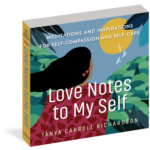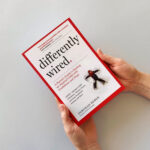With some editorializing, here’s a summary of Arielle Eckstut and David Henry Sterry’s excellent advice for writers putting together nonfiction book proposals. There’s guidance regarding fiction proposals in the book as well, but nonfiction proposals are definitely the more mysterious of the two. So here goes:
- Mind your format. Nonfiction book proposals follow a pretty standardized form—you’ll need a table of contents, an overview, a bio, an audience section, a look at the competition, a sample chapter, and more. Check out their book, The Essential Guide to Getting Your Book Published, or the free chapter, below, for details.
- Mind your voice. The sample chapter isn’t the only piece of the proposal that should speak to your writing chops. Even the nuts-and-bolts sections should sparkle.
- Create a cohesive pitch. It’s not enough that all the pieces of your proposal be equally well-written. They should also be equally relevant to the task at hand—that of selling your book. In other words, your bio is not just your bio. It’s an answer to the question, “Why should this guy write this book?”
- Identify your audience. It may seem obvious to you that there’s a huge untapped audience yearning for information on extreme fly-fishing, but your potential publishers might be generalists who need you to spell out the opportunity. Numbers and data are key here.
- Show that you know your stuff. Use your proposal as a showcase for your depth of knowledge in the area you’re writing about.
- Show that you’re not afraid of hard work. (Arielle and David don’t say this outright, but I know they agree.) A well-researched, carefully structured, and well-written proposal doesn’t just make a better case for your idea than a hot mess—it also shows publishers that they can expect to sign on with a hard-working author. These days, that’s more important than ever.
- Leave ‘em wanting more. As Arielle and David put it, “The less information you can give and still make an airtight case, the better. Why? Because publishers live off HOPE. Hope that your book will be reviewed in top-tier newspapers and magazines. Hope that your book will speak to Terry Gross and, for that matter, that she’ll speak to it. Hope that it will quicken the pulses of buyers at bookstores. Hope that it will spread on the World Wide Web like a virus. Hope that it will beat the odds and become a big fat juicy bestseller […]. 95% of the time, publishers are more likely to shell out good money if they read a dazzling sample chapter or two to get the voice and point of view. More than that is rarely necessary. Indeed, doing too much writing can both harm your chances (if it strays from the agent’s or publisher’s idea of what the book should be) and waste your time (because the publisher or agent who takes on your project may want you to change large parts of it).” (Note: There are several exceptions to this rule, the most notable of which is memoirs.)
[scribd id=37947481 key=key-28owkzw98iev6534g4vn mode=list]





No Comments